
<< · I · II · III · IV · V · VI · VII · VIII · IX · X · XI · XII · XIII · XIV · XV · XVI · XVII · XVIII · XIX · XX · XXI
4th Transatlantic Students Symposium
Give Me Your Tired, Your Poor?
Immigration and Citizenship in the United States and the European Union
Humboldt-Universität zu Berlin and Georgetown University.
Washington D.C., March 4-12, 2006

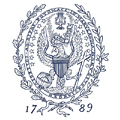
Program Description
The existence of states and state-like groups both necessitates and facilitates the formation of communities. An inherent human "groupishness" (Matt Ridley) may form the foundation of such constructs, but the communities themselves are the result of long evolutionary processes of adaptation, construction and negotiation. In a certain sense, the communities may be "imaginary" (Benedict Anderson), yet their structures and mechanisms are nevertheless concrete phenomena.
Through the construction of communities, internal coherence can be created. Even traditional nation states like France, Italy and Germany underwent a history of "nation-building" and are the temporary outcome of arduous and oftentimes painful processes of harmonization, integration, assimilation and also "ethnic cleansing". The patchwork character of states like the United States and Canada may appear more clearly as their history is largely influenced by immigration, the artificial and "imaginary" character of a "nation of immigrants" being more apparent than e.g. in Germany.
Yet migratory movements are no thing of the past, and at all times there have been refugees, migratory workers, transnational networks, and also ethnic groups with no nation state defending their interests. Globalization, understood as a process by which national boundaries and authorities lose concrete political, economic, cultural and ideological power, facilitates such movements.
Both nation states and supranational constructs like the EU are caught between two alternatives:
accepting the transitional nature of communities faced with increased migration and taking into account a loss of cultural coherence, an uncertain future for the national workforce, and immense investment in integrating immigrants into the society; or
trying to maintain the clear boundaries of the nation state while accepting growing differences with regard to living standards in comparison with other regions, making it more difficult to tighten border control and encouraging growing dissatisfaction and dissent in poorer countries.
In general, these theoretical (and ideological) models often prevent a long-term assessment of benefits and risks concerned with immigration, making it difficult to find adequate solutions to a problem that is not only political and ethical. But could the two maybe be consoled? Could pragmatism and ethics work together, as the call for the tired and poor in Emma Lazarus' poem, which has become the motto of the Statue of Liberty?
The Fourth Transatlantic Students Symposium thus will undertake a comparative approach towards questions of immigration and citizenship in an American and a European context.
Symposium Week Field Trips
Workshops: at Georgetown University
Site Visits: Tour of US Capitol, International Spy Museum
Institutional Visits: American Institute for Contemporary German Studies (AICGS); Department of Homeland Security, US Citizenship and Immigration Services, Arlington Asylum Office; Democratic National Committee; Ayuda (Hispanic Immigrant Advocacy and Support); US House Representative Zoe Lofgren (D-CA), Ur Jaddou (Legislative Assistant for Immigration Affairs)
Total participants: 22
Organizers
Philipp Kneis, PD Dr. Reinhard Isensee (Humboldt),
Dr. Eric Langenbacher, Kimberly Jaeger (Georgetown)
Assistant Organizer: Grit Kümmele (Humboldt / Georgetown Exchange Program)
Student Participants (not organizers)
16 (Humboldt: 11, Georgetown: 5)
Conference Program
Symposium Week Program
Conference Program Flyer
Partners and Supporters
Humboldt-Universität zu Berlin: International Office,
American Studies Program
Georgetown University:
BMW Center for German and European Studies
see also: Latest Program Report
back to: Symposia
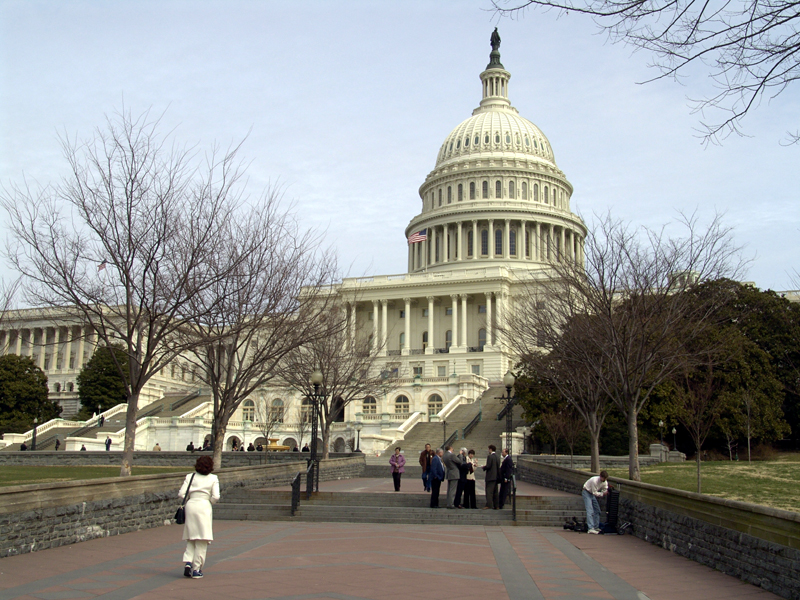
US Capitol

Washington D.C.
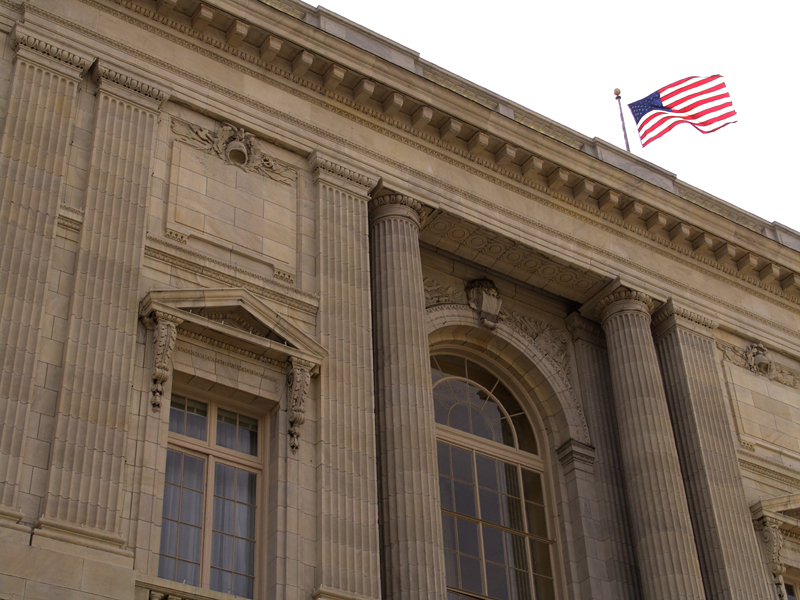
Washington D.C.
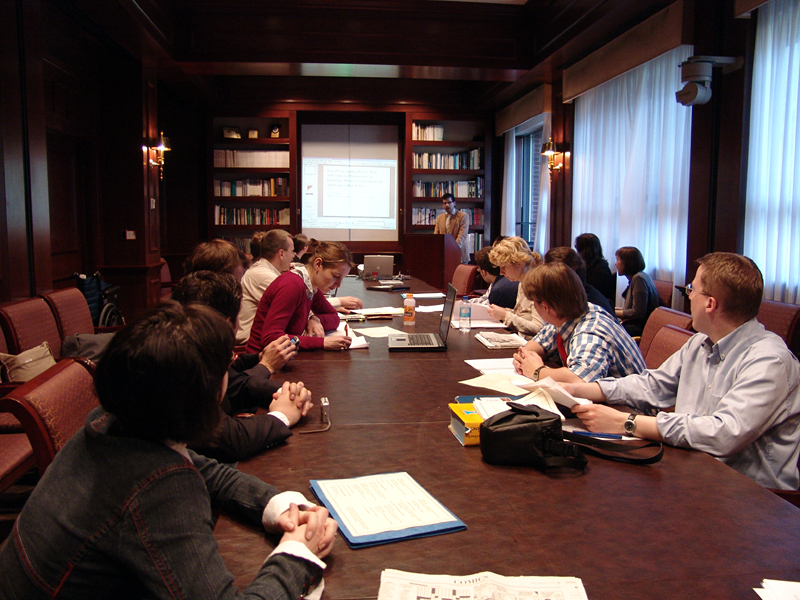
Symposium Conference
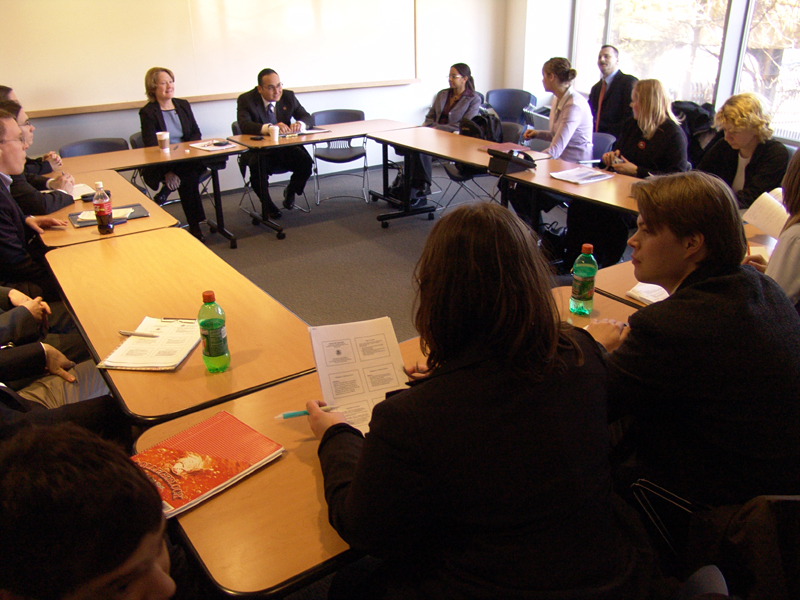
Workshop with the DNC
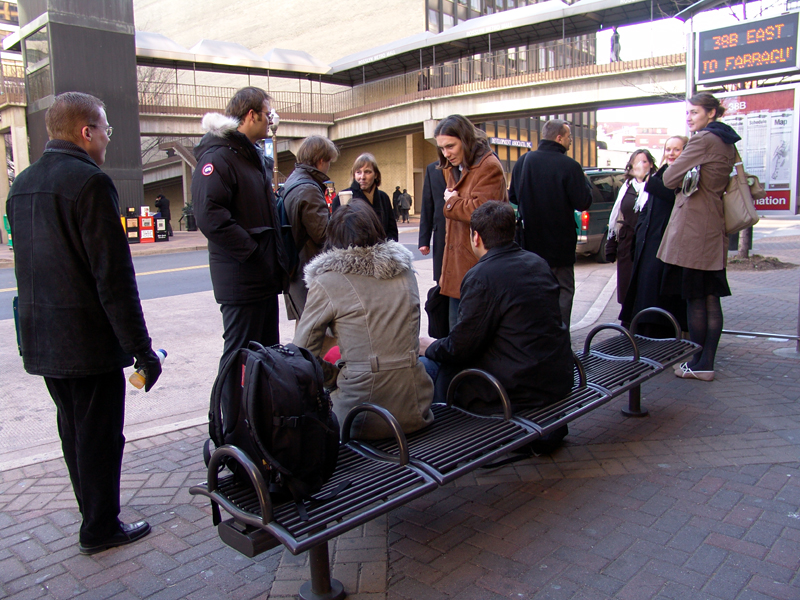
Waiting for the next meeting in Arlington, VA
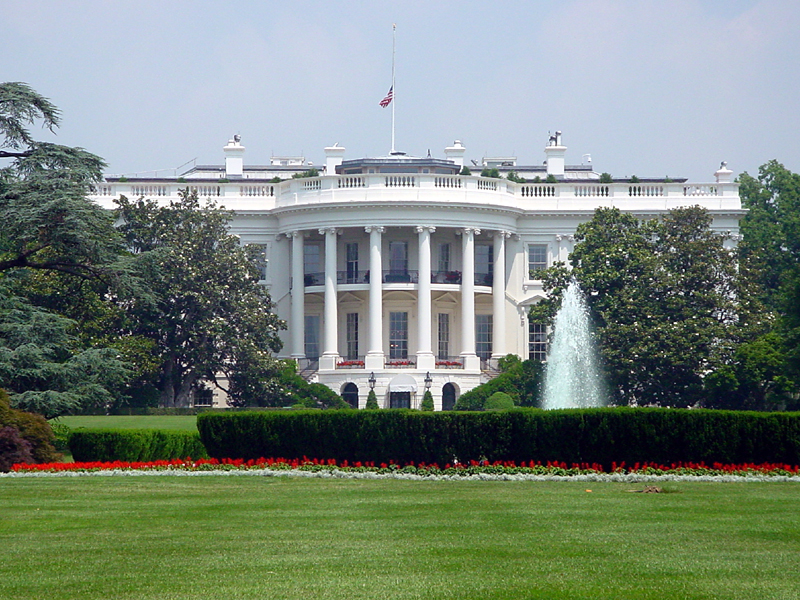
The White House